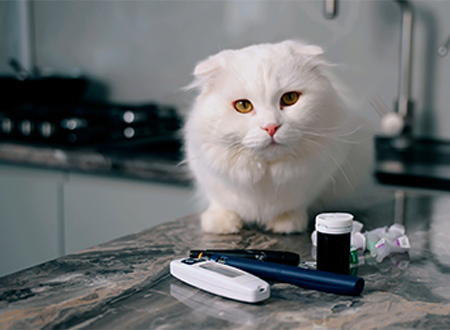Pain Management

We know how to recognize and manage pain
Animals will instinctively hide their pain as a survival mechanism. In the past, this led to inaccurate assumptions about the capacity of dogs and cats to feel pain.
Pain management helps improve recovery, reduces stress and increases a sense of well-being; pain management may even help your pet live longer.
SIGNS THAT YOUR PET MIGHT BE IN PAIN INCLUDE
- Inactivity
- Rising slowly or “collapsing” to lie down
- Walking with a stiff gait, especially after getting up
- Standing or sitting in unusual positions
- Trembling
- Inappropriate elimination
- Whining, whimpering, howling, or constantly meowing
- Constantly licking or chewing at a particular part of the body
- Acting funny and out of character, either aggressively or submissively
- Unable to get comfortable (constantly changes positions to find the most comfortable position)
- Develops new and inappropriate behaviour like chewing on objects such as wood (which may indicate a dental issue).
The longer the pain goes on the harder it is to control, so we always want to treat this pain as soon as possible.